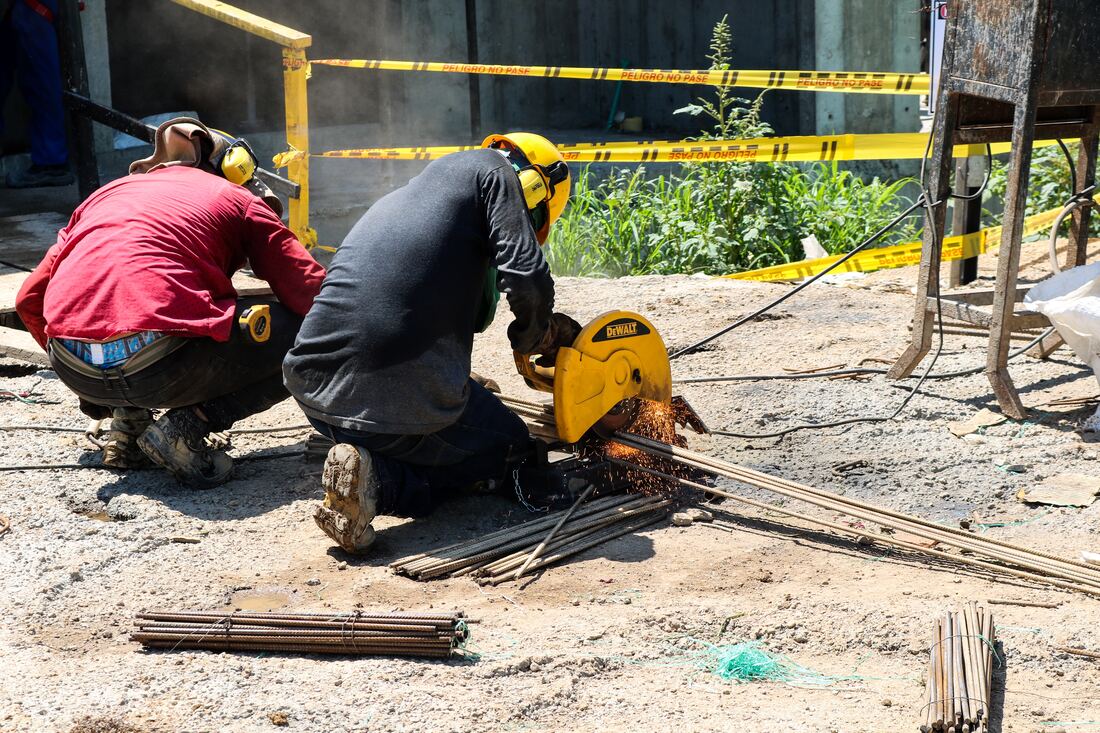|
Hearing aids are not always an option for people, even if you have hearing loss. Communication becomes a barrier in your interactions with loved ones, colleagues, professionals who you need help from - basically, everyone. Not using hearing aids when needed can lead to Alzheimer’s, dementia, and falling.
Based on where you live, coverage for hearing aids may be available through Medicare. Understanding Medicaid Medicaid is healthcare coverage for millions of low-income Americans or those with specific disabilities. The federal government enforces requirements regulated by each state. Medicaid coverage will vary from state to state, and hearing coverage via Medicaid will also vary depending on where you live. Some states offer all-inclusive benefits which cover hearing health, and others are more exclusive. Services that Medicaid may cover for Hearing The following hearing-related services might receive Medicaid coverage:
These coverages vary by state. (Not including children, who receive coverage across the country with EPSDT.) Review your state’s Medicaid program to understand what services are covered and whether you qualify. To determine what coverage you may receive from your state, visit your state’s Medicaid website. Factors that may determine coverage:
Do hearing instrument specialists (HIS) take Medicaid? Yes. Hearing instrument specialists, like the ones from Pure Sound Hearing, accept Medicaid. Check to see if we also accept your insurance. If you don't see your insurance listed, contact us to find out. If you don’t have Medicaid coverage, and the cost of hearing aids is still financially unfeasible, there are discount hearing aids available at Pure Sound Hearing. Contact us for a complimentary hearing test and consultation with one of our hearing instrument specialists in Elizabethtown, Lititz, or Strasburg. A Hearing Instrument Specialist (HIS) is a qualified hearing care professional who specializes in hearing health evaluations, administering hearing tests, and providing solutions for your hearing loss, which may include hearing aids or assistive listening devices.
Other terms for HIS in the U.S. are: Hearing Aid Specialist Hearing Aid Dispensers Hearing Aid Dealers/Fitters After performing a hearing test, your hearing care professional will determine the range of hearing loss and if hearing aids are the best option to treat your hearing loss or if you should look into different options. If you need an option other than hearing aids, our office will refer you to a physician for another opinion. If you need hearing aids, your provider will fit you with the proper technology during a hearing aid trial. There will be a follow-up planned. This plan includes best practices for successful hearing benefits, your HIS making appropriate adjustments tailored to your needs, and receiving hearing aid checks regularly to ensure they are cleaned and working properly. Your HIS keeps up with learning the latest best practices while adjusting the devices to your daily environments, hearing difficulties, and personal hearing profile to find a plan you will benefit from. Interactions and communication with family, friends, colleagues, healthcare professionals, and anyone else you encounter can be less challenging. You can generally find more HIS in suburban and rural areas than other hearing care providers. They may have a satellite or community-based office, help with people in assisted living facilities, or even visit your home. What Qualifications does a Hearing Instrument Specialist have? Your hearing instrument specialist should be licensed and registered by their state. In order to attain and keep their licensure/registration, they must complete a hands-on apprenticeship program or have an associate degree in hearing aid sciences, and pass a written and practical hands-on examination. This ensures they are competent and practice safety in their professions. Maintaining their license/registration includes completing additional hours of continuing education. The U.S. Department of Labor, Department of Veterans Affairs, Office of Policy and Management, and state Medicaid Programs recognize them as hearing healthcare services. Board certification is another way to showcase their commitment to advancing their practice. This is an award that the National Board for Certification in Hearing Instrument Sciences (NBC-HIS) gives to someone with at least two years of independent practice, who passed the National Competency Examination, has completed 24 hours of continuing education every three years, and abides by the NBC-HIS Code of Ethics. This designation is maintained by those who are certified through a recertification process every three years. Additional Services provided by Hearing Instrument Specialists They have been educated, trained, and licensed to:
If you or a loved one experiences hearing loss, please contact Pure Sound Hearing for a complimentary hearing test and consultation. We’re continuing our coverage on raising awareness about National Protect Your Hearing Month. It’s the time of the year when we highlight the causes of hearing loss and preventative measures everyone can take.
Studies have revealed one in five Americans over 12 years old experienced hearing loss in at least one ear. Common causes of hearing loss include a work environment and attending sports arenas/stadiums or concerts. Noise-induced hearing loss (NIHL) can become permanent if treatment is not immediately received. You don’t necessarily need to avoid all noise but rather: 1. Be aware of how much time you are spending in a loud space 2. Know when to take a break 3. Wear earplugs when appropriate An Important Timeline on Hearing Protection and Awareness 1914 A patent was made available for disposable earplugs. 1976 This year marks the establishment of the National Hearing Conservation Association. This organization publicly advocates for hearing loss prevention. 2008 “It's a Noisy Planet. Protect Their Hearing® (Noisy Planet)” campaign was started by The National Institute of Deafness and Other Communication Disorders (NIDCD). This movement focuses on people who actively try to help children follow healthy hearing practices. The main message is: “Turn it Down, Walk Away, or Use Hearing Protection.” Ways to Observe Protect Your Hearing Month
|
Categories
All
|
-
products
- Rexton Emerald M 8C RIC
- Rexton inoX CIC 8C
- Rexton Mosaic M 8C BTE
- Rexton Mosaic P 8C BTE
- Rexton Stellar RIC 8C
- Rexton Sterling 8C CIC / IIC
- Rexton Sterling 8C ITE / ITC
- Rexton Emerald XS 8C RIC
- Rexton Emerald S 8C RIC
- Signia Active Pro
- Signia CROS AX
- Signia CROS Hearing Solutions
- Signia Insio Charge&Go AX
- Signia Insio Nx IIC/CIC
- Signia Insio Nx ITC/ITE
- Signia Intuis 3 Family
- Signia Motion Charge&Go X
- Signia Motion 13 Nx/Motion 13 P Nx
- Signia Prompt
- Signia Pure Charge&Go AX & T AX
- Signia Pure 312 AX
- Signia Pure 10 Nx
- Signia Pure 13 BT
- Signia Pure 13 Nx
- Signia Silk X
- Signia Styletto AX
- Signia Styletto X
- SERVICES >
- about
- blog
- Insurance
- contact
|
© 2023 Pure Sound Hearing Aids. All Rights Reserved.
|
Proudly powered by Weebly
-
products
- Rexton Emerald M 8C RIC
- Rexton inoX CIC 8C
- Rexton Mosaic M 8C BTE
- Rexton Mosaic P 8C BTE
- Rexton Stellar RIC 8C
- Rexton Sterling 8C CIC / IIC
- Rexton Sterling 8C ITE / ITC
- Rexton Emerald XS 8C RIC
- Rexton Emerald S 8C RIC
- Signia Active Pro
- Signia CROS AX
- Signia CROS Hearing Solutions
- Signia Insio Charge&Go AX
- Signia Insio Nx IIC/CIC
- Signia Insio Nx ITC/ITE
- Signia Intuis 3 Family
- Signia Motion Charge&Go X
- Signia Motion 13 Nx/Motion 13 P Nx
- Signia Prompt
- Signia Pure Charge&Go AX & T AX
- Signia Pure 312 AX
- Signia Pure 10 Nx
- Signia Pure 13 BT
- Signia Pure 13 Nx
- Signia Silk X
- Signia Styletto AX
- Signia Styletto X
- SERVICES >
- about
- blog
- Insurance
- contact




 RSS Feed
RSS Feed